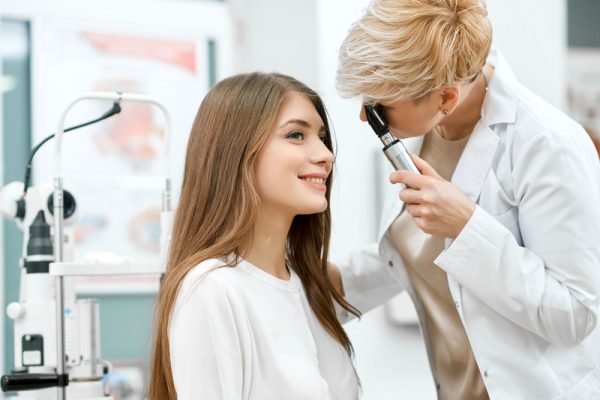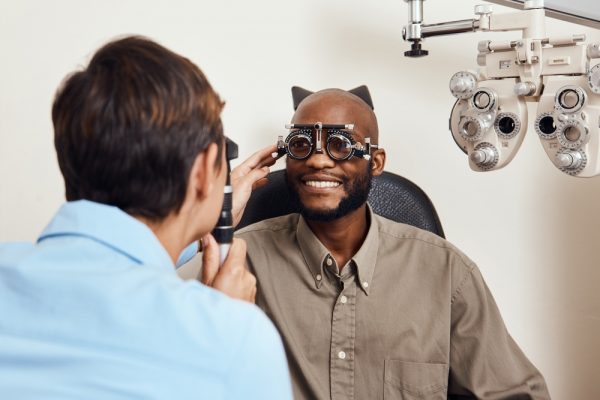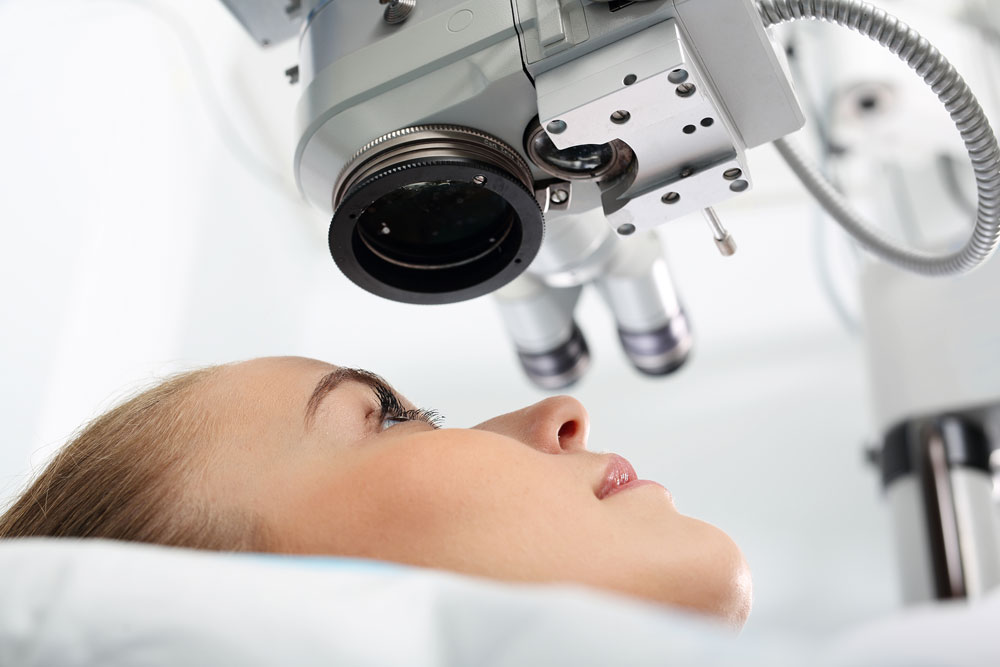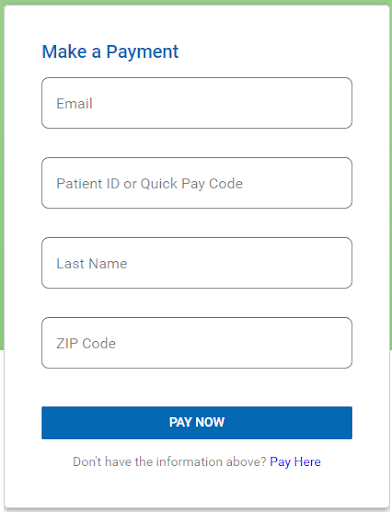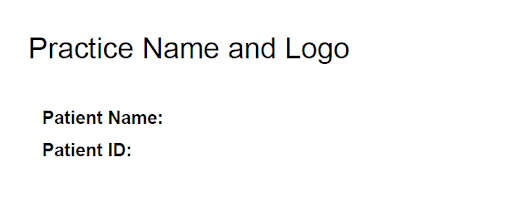Comprehensive Eye Exams & Vision Testing
Eye Exams Overview
Eye exams are thorough inspections of your eye health. During a comprehensive eye exam, your ophthalmologist will evaluate changes in your vision, eye structure, blood pressure, and more.
An eye exam reveals more about your health than you might think. Your eye doctor can detect hundreds of severe conditions during a routine checkup, ensuring minor issues are addressed before they become serious. Commonly discovered conditions include diabetes, high blood pressure, and vision loss.
Vision loss affects all ages, especially people 40 and older. According to the CDC, it is estimated that around 80 million Americans have health conditions that can lead to blindness. An annual eye exam can help detect and address these conditions.
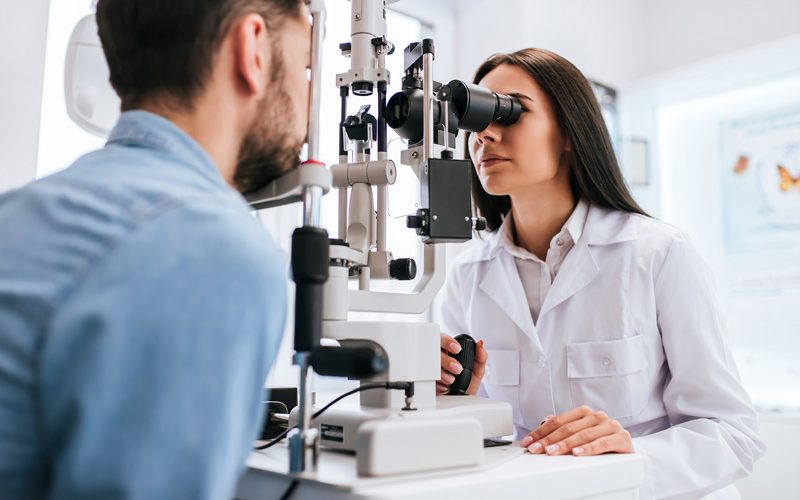
Why Are Eye Exams Important?
Eye exams are just as important as a check-up with your physician. They detect eye diseases, underlying conditions, and changes in your vision.
Based on your eye exam results, our team at Midwest Vision Partners can prescribe a plan tailored to your specific needs. Treatment plans and preventive care may include dietary changes, new prescriptions for glasses, or surgeries.
Many eye diseases have no initial symptoms but can cause vision changes that alter daily life. By finding and addressing these diseases early, we can improve your long-term comfort and quality of life.
What Happens During an Eye Exam?
Visual Acuity Testing
Visual acuity testing is the first step of an eye exam. This involves reading an eye chart to determine your clarity of vision.
Refraction Assessment
The refraction assessment checks for changes in your prescription. This step is especially important for aging eyes.
Eye Movement & Alignment Tests
These tests analyze your binocular vision, muscle coordination, and eye tracking. Binocular vision is your eyes’ ability to work together and develop a clear image for your brain.
Internal Eye Health Check
Your internal eye comprises the optic nerve, retina, macula, and other structures that transmit images to your brain. A comprehensive eye exam will employ dilation, tonometry, and slit lamp exams to check your eye’s intraocular pressure and find underlying issues.
How Often Should You Get an Eye Exam?
Patients aged 18 to 60 should schedule an eye exam every 1 to 2 years. Most people with no underlying conditions or risk factors can opt for an appointment every 2 years. Still, diabetics, contact lens wearers, and those with a family history of eye disease should schedule an annual eye exam.
Seniors and ethnic groups with a high prevalence of eye disease should also schedule annual eye exams. People of African, Latino, and Asian heritage are more likely to develop cataracts, glaucoma, and diabetic retinopathy than people of other ethnic backgrounds.
Children should receive their first eye exams at 6 months, 3 years, and before they enter 1st grade. We then recommend a screening every 2 years.
Common Signs You May Need an Eye Exam
- Blurred or double vision
- Frequent headaches or eye strain
- Light sensitivity or halos around lights
- Difficulty seeing at night
- Floaters or flashes of light
- Trouble focusing while reading or working at a screen
Types of Eye Exams
Comprehensive Eye Exam
A comprehensive eye exam fully evaluates your vision and eye health. Depending on their risk factors, we recommend that patients schedule an exam every 1 to 2 years.
Contact Lens Exam
Contact lens exams measure your corneal shape and prescription.
Pediatric Eye Exam
Pediatric eye exams focus on a child’s visual development and screen for abnormalities and underlying conditions. They are designed to be calming and welcoming.
Preparing for Your Eye Exam
Eye exams are a painless process and do not require much preparation. Remember to do the following before you step into our office:
- Bring your current glasses/contacts
- Review your medical and vision history
- Ask someone to drive you home, since your eyes will be dilated post-exam
Eye Exams and Your Overall Health
Even if your vision seems healthy, it’s still important to have your eyes checked every 1 or 2 years. Many eye diseases do not have symptoms in their early stages. Eye exams can also detect early signs of high blood pressure, diabetes, and neurological disorders.
Insurance Coverage and Costs
Most employees on a company’s health insurance plan receive coverage for annual eye exams and glasses. Your specific coverage and costs will depend on what is explicitly stated in your policy. Contact us for more information
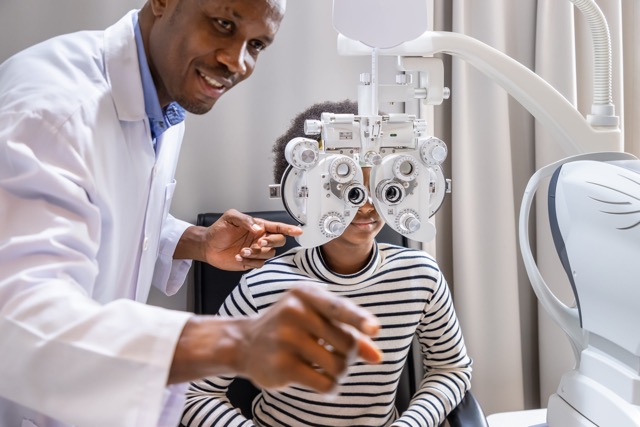
Schedule Your Eye Exam with Midwest Vision Partners
A lifetime of healthy vision starts with scheduling routine eye exams. Midwest Vision Partners’ expert eye doctors are always happy to see you—they work hard to craft personalized treatment plans that match your lifestyle and vision goals.
Our network expands across the Midwest, with locations serving Illinois, Michigan, Ohio, West Virginia, and Pennsylvania. Schedule an appointment with us today.
Related Services
Trust your eyes with our vision care experts. See what we have to offer today.
Explore all your laser vision correction options at a location near you.
Let's Get Started
When It Comes To Eye Health, We’re Your MVP



